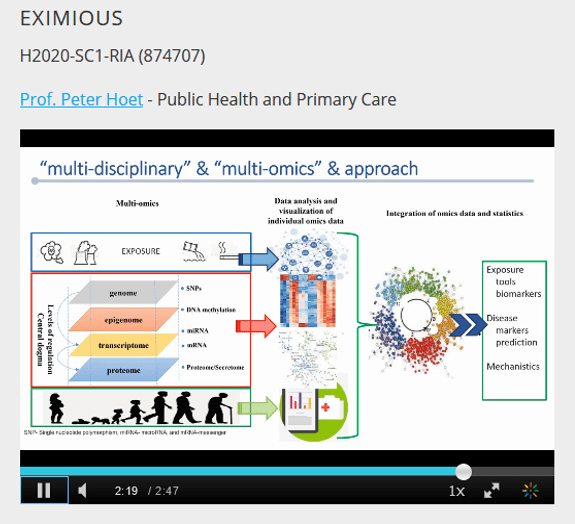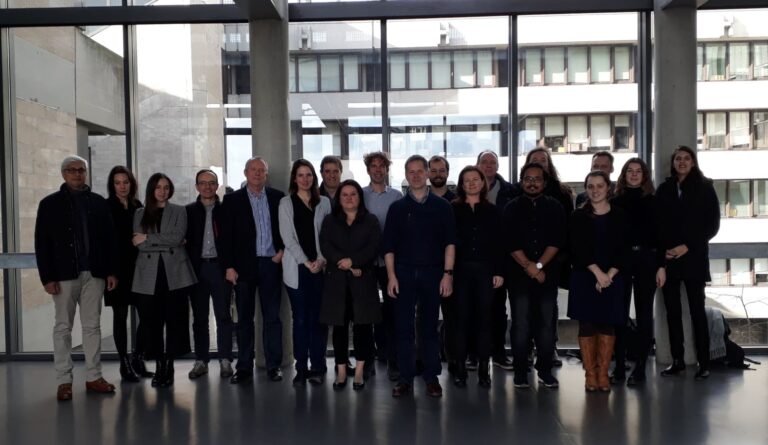Mapping Exposure-Induced Immune Effects: Connecting the Exposome and the Immunome
Partner in the spotlight: accelopment Schweiz AG
29 November 2021
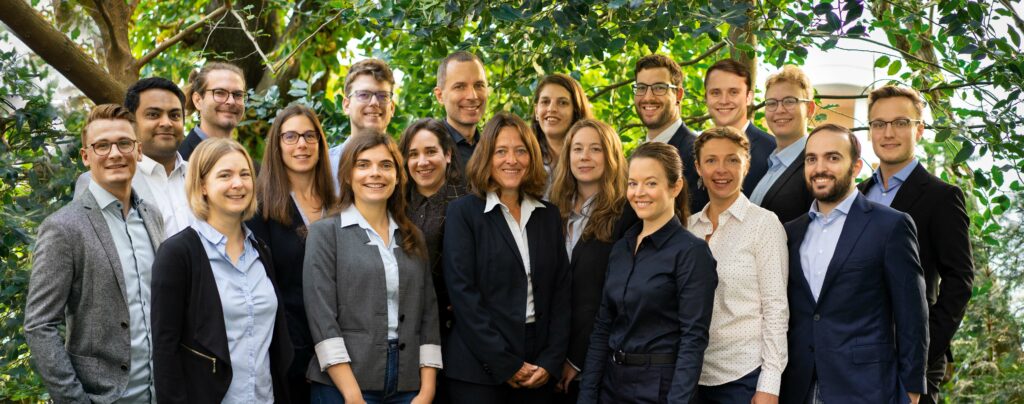
From left to right: Michel Eckle, Kevin Keyaert, Denise Diggelmann, Michael Hönger, Emily Rose Ciscato Andreia Cruz, Liam Colman, Sara Rodriguez, Johannes Ripperger, Jeanette Müller, Julia Götz, Jacqueline Strehler, Géraldine Messmer, Belhassen Ghoul, Joanna Plesniak, Moritz Aufdenblatten, Patrick Schneier, Marco Cavallaro, Patrik Jinek
This month we’re pleased to introduce accelopment Schweiz AG, our EXIMIOUS partner in the lead for the project’s communication, dissemination and exploitation work package. Based in Zürich, Switzerland, accelopment has been a sparring partner in the acquisition, management and communication and dissemination support of EU funded projects for research and innovation since 2008. With 75 years of combined experience under the EU Framework Programmes, Eurostars and other funding programmes, accelopment’s team of experts is passionate about supporting researchers in transforming innovative ideas into real solutions for a sustainable future.
As EXIMIOUS carries out critical research to investigate the connections between human exposures to the environment and immune-mediated diseases, the themes of the project touch on people’s everyday lives. It is, thus, especially important that the activities and output of the project are effectively communicated and disseminated to a broad audience, also enabling the opportunity for exchange between these and the project’s partners. The strategies to implement a variety of targeted activities on this front are the hallmark of accelopment’s contribution within EXIMIOUS.
With complementary backgrounds in research, project management, marketing and communication, the accelopment team supports researchers from academia and industry in identifying the right funding scheme and call for their project, in preparing a competitive proposal, leading the communication and dissemination of results of funded projects, and sharing their knowledge through a variety of training activities. While the KU Leuven team coordinates the EXIMIOUS project, Emily Rose Ciscato, Kevin Keyaert and Julia Götz from the accelopment team in Zürich are very pleased to be supporting the EXIMIOUS consortium in both communication and dissemination of results, and are looking forward to bringing to life the many activities planned for the next three years together.
Follow us on Twitter, Facebook and Linkedin to learn more about the latest results and activities of all partners in EXIMIOUS.
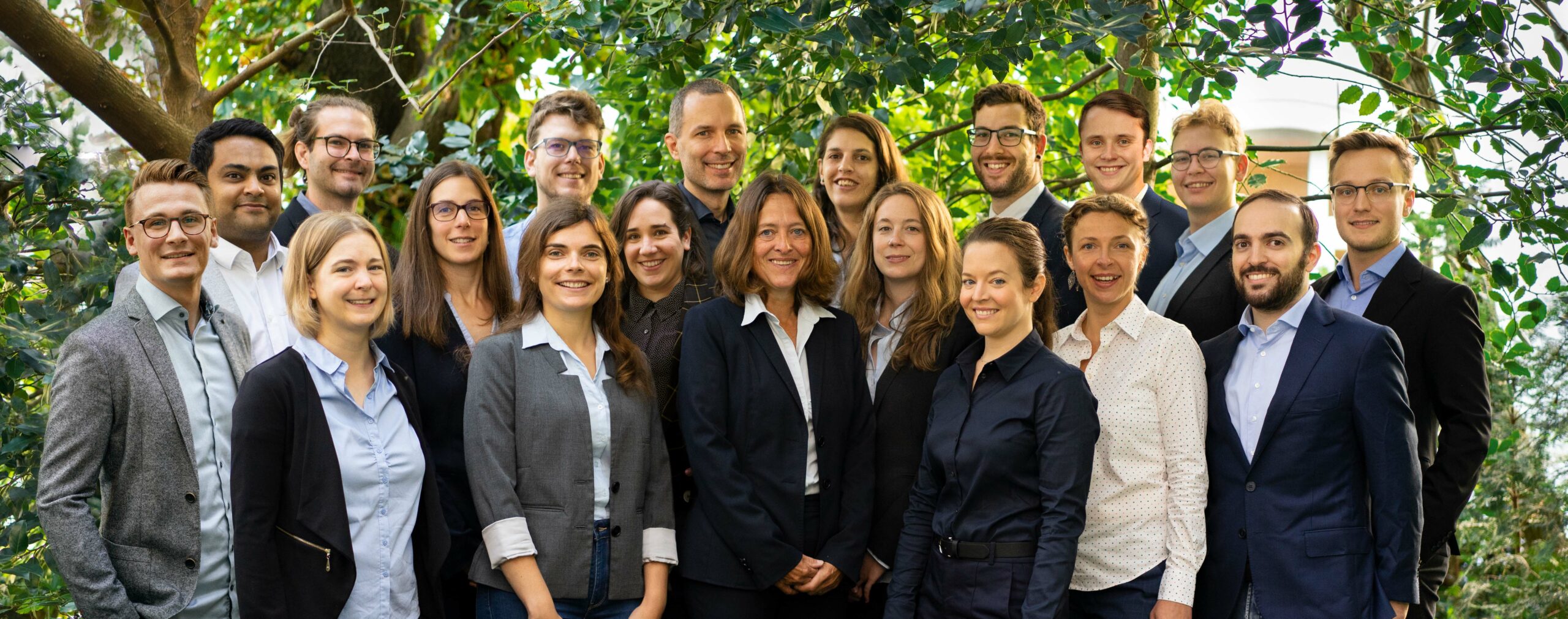
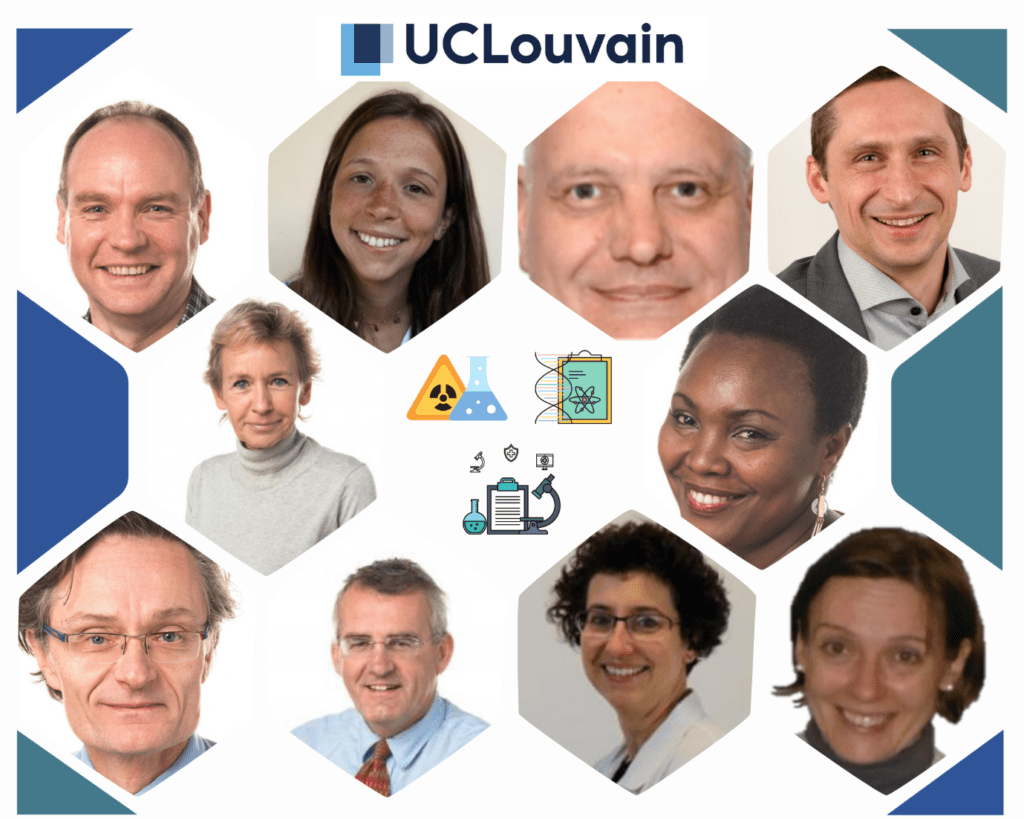
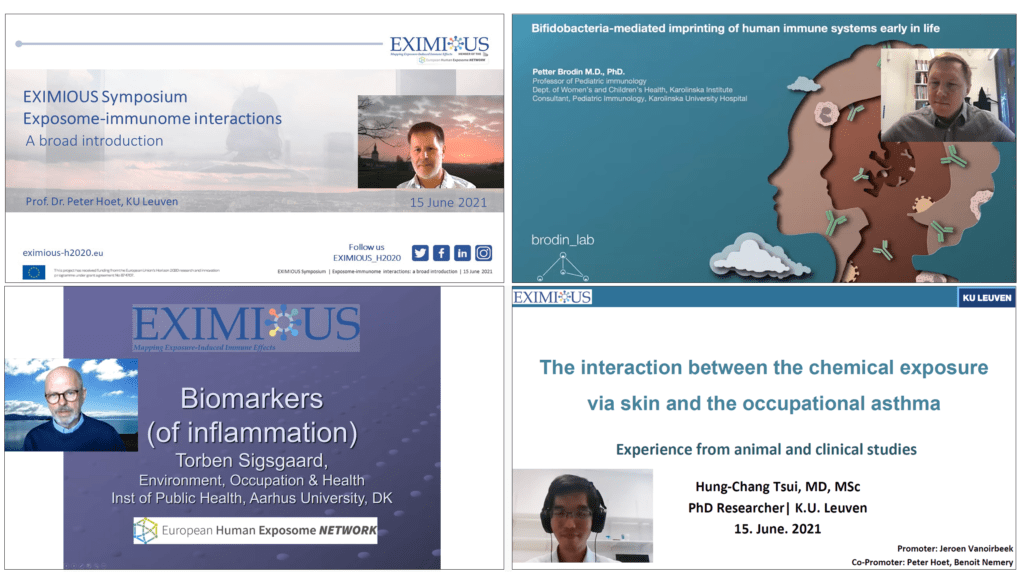
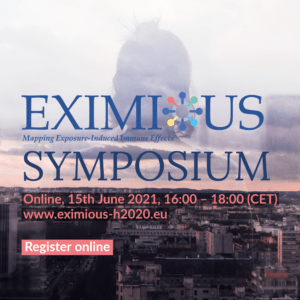 In case the news didn’t reach you yet, next Tuesday, 15 June 2021 we’ll be launching our very own EXIMIOUS Symposium series!
In case the news didn’t reach you yet, next Tuesday, 15 June 2021 we’ll be launching our very own EXIMIOUS Symposium series! 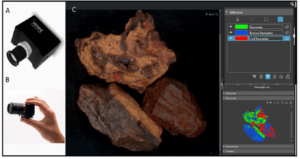 Headquartered in Leuven, Belgium, Imec is a world-leading research and innovation hub in nanoelectronics and digital technologies and is a leader in combining microchip technology, software, and ICT. Imec’s research bridges the gap between fundamental research at universities and technology development in industry. One of their recent developments is a
Headquartered in Leuven, Belgium, Imec is a world-leading research and innovation hub in nanoelectronics and digital technologies and is a leader in combining microchip technology, software, and ICT. Imec’s research bridges the gap between fundamental research at universities and technology development in industry. One of their recent developments is a 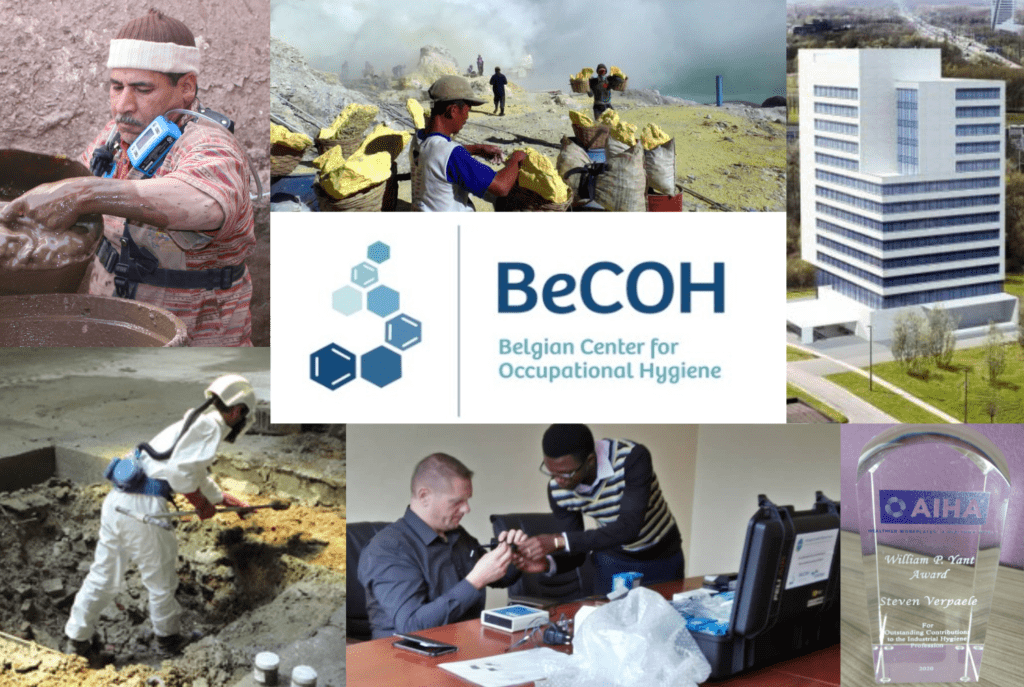
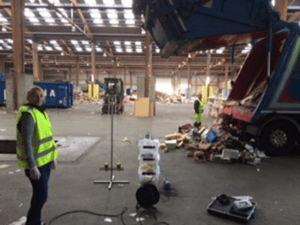 1) the nationwide DOC*X cohort, constructed by linkage of several Danish registers, will be used to investigate the association between several different occupational exposures and the development of
1) the nationwide DOC*X cohort, constructed by linkage of several Danish registers, will be used to investigate the association between several different occupational exposures and the development of